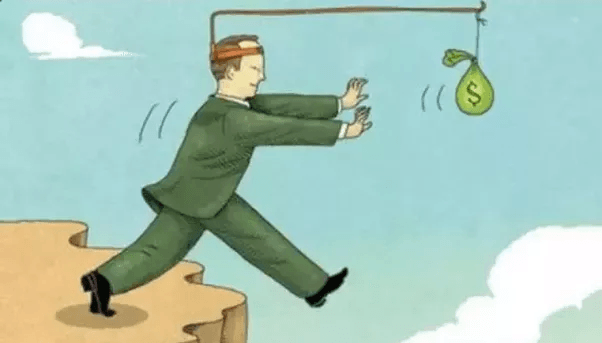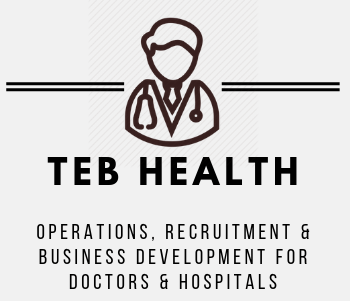With Trump, Why it Never Sticks
- By Ali Shefizadeh, MD, FACHE
- •
- 26 Mar, 2018
- •
Harassment charges, bigotry, and other accusations: why none of it sticks to President Trump

Triggered, as this blog is called, is a collection of short essays on some of the day's big headlines and why some of it sticks and others don't.
More importantly, this is a blog about the human experience. Why do some things stick to people and others don't? Think about that.
Much has been made about the Trump "teflon" effect.
What is that, you ask? Beats me. I don't know either.
I think it just means that regardless at what you throw at Donald Trump, he doesn't seem to be impacted by those accusations it the same way as other politicians do. The reason, I believe, is remarkably simple.
When I was in medical school, I remember a couple lectures in my second year at UCLA during a psychiatry and neuroscience block. They taught us that humans react to inputs from their environment, uniquely processing, encoding, and giving that information meaning.
Before I bore you to death, what's the point of this science?
Well, each of us processes information differently and is triggered differently by stimuli. For some, a bad memory evokes responses to a particular phrase, sentence, or reminder that makes that person cringe, cry, sometimes lash out. Think of that killer from Aruba who is accused of Natalie Halloway's murder. What happened when he was again accused of the murder 5 years later while with his Peruvian girlfriend? He was triggered, and killed her senselessly.
For others, that same stimuli does not illicit a response. It has to do with our experiences, how we grew up, what our family compositions were, and how we learned to relate to the world.
All of this is to say that Trump is no different. When a politician like Marco Rubio was mocked for simply getting thirsty during a response to the state of the union speech, he choked in his response. When X or Y politician gets accused of sexual harassment, whether they are guilty or not, we often assume that their resignation is an afterthought. They think they are guilty, and so they are in our eyes too. Think Anthony Weiner and his sexting scandal. The man was guilty, and acted guilty, and so we chased him out of Washington. It was all cooked from the beginning.
With President Trump, none of this happens. Why? Because he is doesn't act guilty. You might think he is guilty or not, that he is effective or not, but he thinks he is not guilty, and that he hasn't done anything wrong. Think of the Russia collusion story and his response. He does everything you would think someone that didn't want to make you suspicious wouldn't do. Because he likely didn't collude, and he quite clearly doesn't care if you think he did. He is not triggered.
I know some of you will reply to me and say that he is, because CNN says so. He may be triggered by the coverage of him by the media, but that is different from him being triggered by the actual topic at hand: collusion. To that, he is clearly not triggered.
There is something about that strong affirmative denial that makes us believe it is true, or at least casts doubt on the role of the other side's story or motives.
We by nature want to believe our fellow man, and the fact that President Trump does not get triggered in the same ways that most weak politicians we have become used to do is why those you like him can't get enough, and those that don't can't stand him.
Thanks for reading. To comment, please do so below. To subscribe, please fill out the info at the bottom of this screen. Most importantly, keep being awesome.

Question: What is the biggest cause of bankruptcy in the US? (HINT: This is highlighted in the media)
Answer: Medical Bills
Question: Is that what this blog is about? Answer: Not at all, because you already know that.
Beyond the cost of medical bankruptcy to consumers, the cost of bankruptcy and "oops" moments for providers and the health systems they operate within is increasing too.
With the rising cost of the business of medicine, decreasing reimbursements, ever-increasing reporting and data entry requirements (aka why your doctor keeps typing when you are speaking to him/her), and dealing with insurance companies, doctors are having a harder time collecting and having to hire more people to chase the bills for them.
Which is why more and more doctors are giving up on the idea of having their own practice in favor of working for mega-groups or health systems. In a 2018 article in the New York Times titled "The Disappearing Doctor: How Mega-Mergers Are Changing the Business of Medical Care," the authors write on how new deals and mergers involving major corporations "loom over doctors’ livelihoods, intensifying pressure on small practices and pushing them closer to extinction."
The idea is simple in theory: if you merge systems and supposedly overhead, you decrease costs. But as a recent example from Wayne State University's Faculty Practice Group shows, this is not so simple after all. The group, one of the largest, filed from bankruptcy protection last November and the university is on the hook for over $16M as part of the reorganization plan.
Why is this? According to a recent article in Modern Healthcare, "Over the past decade, UPG's number of physicians declined by 50 percent, which hurt clinical revenue and made its leased network of suburban offices untenable, the filing said."
In the same NY Times article I cited here, a doctor named Dr. Navya Mysore is highlighted. She speaks about being frustrated working for a large healthcare system, and moving to One Medical, a venture-backed practice.
As a clinician or health system leader, this information lends itself to one reality. You need to save for a rainy day fund and align your organization and clinical group to meet the same mission. Too many times, contracted physician costs pile up without bringing in the reimbursement to meet them. Hint: RVU and physician compensation based on productivity is not emphasized nearly enough.
Too many times as well, business development and appropriate recruitment of patients lags far behind fancy operations and new approaches to customer service. While service is still king, so is investing in business development if you want to remain relevant in your service area.
After all, even when the doctor joins the big fancy group like Wayne State's, that is no guarantee they will know how to manage.
If you like what you read here, make sure to subscribe to get my blogs delivered to your email. Also share about TEB and what we do to develop doctor's businesses through TEB Health and develop future budding doctors through TEB Academy to your friends and family.

To get in front of the line, you can take a willing donor who wants to be paid. If not, you still get a place in the line but it may take longer. Is it fair? No, but neither is life.
Disneyland does this with flash pass. I guarantee you that I will get a lot of responses about how unethical this is, but consider that patients already desperate for organs travel to 3rd world countries to get these organs at enormous personal risk.
There, donors are paid. Is it right? No, but neither are a lot of other things we witness daily.
When choosing between life and death, I choose life and giving patients choice. #travel #countries #risk #life #things #personal #fair #world #take #choice #donation
More here: https://www.washingtonpost.com/national/health-science/a-daughters-gift-to-her-mother-saves-two-live...



Big title, right.
But what does it mean?
Have a goal, a strategic direction for your life, something you want. Settle on it and when obstacles come your way, don't let them get to you.
How do you do this?
Think of it this way. I listened to a speech by Simon Sinek where he said if you know your destination, you won't be dissuaded if I put a chair in front of you. Why? Because you go around the chair, around the obstacle, to your destination. It doesn't matter the steps, or the extra ones you took to go around my obstacle. You wanted the goal so badly, you used your creativity to overcome the chair being placed in front of you.
What if you will go to any destination without a target or goal? That same chair or obstacle I place in front of you now becomes that which stops you from either moving forward or making it so you start heading into a new direction.
Moral of the story. If you own or manage a hospital or healthcare organization, having a strategic goal and vision is equally important. If you are a student, it is similarly important. If you are a professional or executive, it is how you overcome the annoying things that come into your life while staying laser focused on the goals and not complaining.
Best wishes to all of you, and if you like these ideas - visit me at TEBHealth.com or TEBAcademy.com
Better yet, contact me at shefizadeh@TEBHealth.com if you would like me to coach you, speak to your leadership group, or simply share with you my thoughts on a business proposal or expansion plan you have. I hope I can be in service to you.
Thank you.

Keep Busy or Die Early
My parents have always taught me to keep busy. Pack your mind with so many positive things and activities so that it feels like a packed can of sardines! Don’t give your mind time to think about useless thoughts. Don’t let your boredom cause you to create or rehash or rethink what if scenarios of what you/someone else said or did or meant.
Case in point. In 1978, Dr. Bruce Alexander, a Canadian psychologist did a Rat Park experiment that led to a major breakthrough linking environment to addiction. He and his research group took a group of rats and put some in one cage and others in another cage, all the same species so you have similar rats in both cages. One of the cages was like Disneyland or what he called Rat Park inside, full of activities. The other case was like a third world country prison. In both cages, the researchers attached various drugs to the cages (so the rats could self-inject themselves with drugs) and watched to see what each of the two rat groups would do. The ones with the activities in their cage tried out the cocaine/heroin/amphetamine but they never came back for seconds. Why? Because they had too much to do. What about the rats in the cage with nothing to do but inject the drugs? Well they became addicts and died.
Addiction or bad habits are a product of a person’s environment that feeds the addiction. Feelings of hopelessness, lack of control, or unsatisfactory living conditions can make a person dependent on substances. Under normal living conditions, rats and yes, humans, can resist drug and alcohol addiction.
Moral of the story – surround yourself with positive ways to make an impact, influence and help others so you have no time to think about old and redundant matters like who said what and what they could have meant by it.
About the Author: Ali Shefizadeh is a healthcare executive with 10-plus years’ experience in healthcare administration, clinical medicine (trained as MD) and leadership roles as hospital CEO and COO. He is a UCLA trained physician who went into medical school because of intellectual ability and desire to help patients and ended up wanting to manage people and healthcare organizations. Ali is highly motivated and desiring to make critically needed change management, operations optimization, and strategic goal-setting needed to reach goals. He is focused on re-establishing financial stability, growth, and increasing market share for healthcare organizations, helping them reach a dominant market position in their chosen service area. To read more about Ali and his work helping hospitals and clinics visit TEBHealth.com and to see more of what he does to help students visit TEBAcademy.com
To read more entries like this, read Ali's book on Amazon: Fear Not, Grasshopper

Choose Health, Not Wealth
Health as measured by values and compatibility can last forever (as long as you live) if it is grounded in a person’s upbringing, but wealth can be built quickly and can fade quickly. It can also keep you happy momentarily but not in the long run.
There is a story about the prophet Muhammad that reflects this. As the most powerful man of his time, Muhammad had many suitors for his daughter, Fatima. When the time came for her to get married, he looked around at whom he could trust with his precious angel. Ali, a young child whom he had raised but who had nothing of material possession came to mind. The prophet asked Ali what he could offer as far as a stable life and material wealth for his daughter, Fatima. Ali said he had nothing. Muhammad shakes his head and replies to Ali: you have something much more valuable. You have your values, ethics, and you are a good man. Muhammad tells Ali to sell his armor, the one protecting his body, and use the funds to help finance the marriage initially. Ali goes to sell the armor and once he tells the story of what happened to the trader buying it at the local market, the trader gives him the gold coins for the armor and the armor too.
Moral of the story - Even when you want to marry a Prophet’s daughter, wealth means nothing. Focus on a true measure of health within you as measured by your values and compatibility with another human being. Focus on what you both like to do, what kind of furniture you both like, how your parent’s relate as compared to that of your significant other’s. These things are what make a person, not money.
With the right person, you can always make all the money the world has to offer, but with all the money in the world and the wrong person, you will be miserable for as long as you are with them.
About the Author: Ali Shefizadeh is a healthcare executive with 10-plus years’ experience in healthcare administration, clinical medicine (trained as MD) and leadership roles as hospital CEO and COO. He went into medical school because of intellectual ability and desire to help patients and ended up wanting to manage people and healthcare organizations. Ali is highly motivated and desiring to make critically needed change management, operations optimization, and strategic goal-setting needed to reach goals - and he is focused on re-establishing financial stability, growth, and increasing market share for healthcare organizations, helping them reach a dominant market position in their chosen service area.
To read more about him visit his work helping hospitals @ TEBHealth.com or helping students @ TEBAcademy.com



